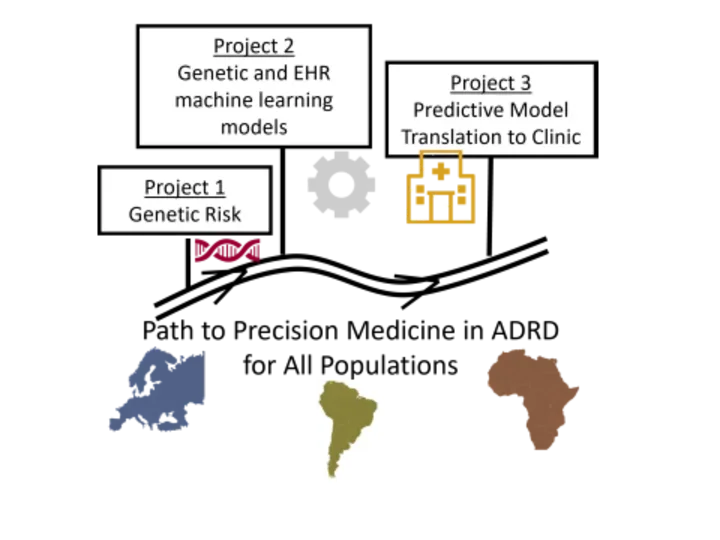Research Projects
Current Projects

Genetics
- Progressive Supranuclear Palsy (PSP) is an atypical Parkinsonian disorder that causes eye movement abnormalities, falls and Parkinsonism. How can we use whole genome sequencing and other genomic technologies to determine genetic risk factors for PSP?
- How can we integrate multiple genomic technologies to better understand dementias caused by tau protein misfolding?
Machine Learning with the Electronic Health Record and Genetics in Dementias
- How can we develop and apply machine learning models to accurately predict dementia diagnoses and outcome fairly across different populations?
- How can we use structured and unstructured EHR data to determine different stages of dementia?
Dementia Clinical Research
- How can we use the EHR to help recruit people into clinical research studies?
How can we improve patient and caregiver understanding of genetics and dementias?